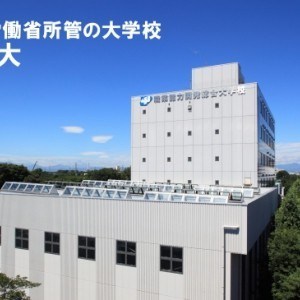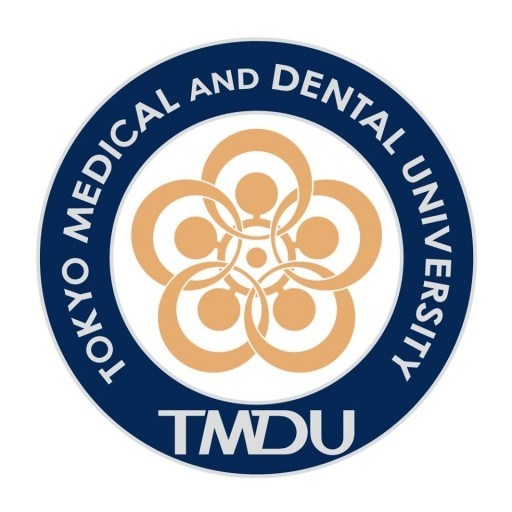The Bachelor of Science in Computer-Aided Design of Advanced Materials and Technologies at the Polytechnic University offers a comprehensive education aimed at developing expertise in the innovative design and development of advanced materials using cutting-edge computer-aided technologies. The program is designed for students interested in the intersection of materials science, engineering, and digital design, preparing them to contribute to high-tech industries such as aerospace, automotive, electronics, and biotechnology. Throughout their studies, students acquire a deep understanding of the properties and behaviors of various materials, as well as mastering advanced computer-aided design (CAD) tools and simulation software essential for modern materials development. The curriculum covers fundamental subjects such as materials science, physics, mathematics, and computer science, integrated with specialized courses focusing on computer simulation, 3D modeling, automated design processes, and material characterization techniques.
Practical training is a key component of the program, providing students with opportunities to work on real-world projects, laboratory experiments, and internships in collaboration with leading industrial partners. This hands-on approach ensures graduates are well-equipped with the technical skills needed for designing novel materials, optimizing manufacturing processes, and innovating product development. The faculty comprises experienced researchers and industry professionals who guide students through both theoretical concepts and practical applications, fostering an environment of innovative thinking and problem-solving. Graduates of this program will be prepared for careers in research and development, quality assurance, materials testing, and technological innovation within various high-tech sectors. They will also be equipped with the competencies necessary for further academic pursuits, such as postgraduate studies or scientific research.
Focusing on the integration of digital technologies and materials science, the program ensures that students are well-versed in the latest trends and advancements in the field, enabling them to contribute effectively to the creation of next-generation materials and technological solutions. Overall, the Bachelor in Computer-Aided Design of Advanced Materials and Technologies provides a multidisciplinary education designed to meet the demands of modern industry and science, fostering skilled professionals capable of pioneering developments in the field of advanced materials.
The Master's program in Computer-Aided Design of Advanced Materials and Technologies at Polytechnic University is specialized in equipping students with the knowledge and skills necessary to innovate and optimize the development of advanced materials through modern computer-aided design (CAD) techniques. The program focuses on integrating computational modeling, materials science, and engineering principles to address complex challenges in creating new materials with unique properties suitable for high-tech industries such as aerospace, electronics, energy, and biomedical applications.
Throughout the curriculum, students gain a comprehensive understanding of the fundamental concepts of materials science, including the structure-property relationships of various materials, such as metals, polymers, ceramics, and composites. They also explore various computer-aided design tools and simulation software to model material behavior at different scales—from atomic and molecular levels to macrostructures. This enables future engineers to predict how materials will perform under specific conditions, accelerating the development process and reducing reliance on costly experimental testing.
The program emphasizes practical skills, providing hands-on experience with industry-standard software like finite element analysis (FEA), computational fluid dynamics (CFD), and other computer modeling tools. Students participate in project-based learning, working on real-world problems provided by partner industries or research centers. They learn to develop CAD models, perform simulations, analyze results, and optimize materials and processes for specific applications.
In addition, the program covers advanced manufacturing techniques, material processing methods, and the integration of artificial intelligence and machine learning in materials design. Such interdisciplinary approach prepares graduates to contribute to innovations in creating smarter, more efficient, and more sustainable materials. The curriculum also promotes collaboration with research institutes and industry partners, providing opportunities for internships and joint projects that enhance practical experience.
Graduates of the Master's program in Computer-Aided Design of Advanced Materials and Technologies will be capable of conducting research, developing new materials, and improving manufacturing processes through computer-aided approaches. They can pursue careers in research and development departments of leading industry corporations, specialized design and engineering firms, or continue academic research at doctoral levels. The program aims to prepare professionals who will drive technological advancements and contribute to solving global challenges related to material efficiency, environmental sustainability, and technological innovation.
Program requirements for the Master’s Degree in Computer-Aided Design of Advanced Materials and Technologies include a completed undergraduate degree in engineering, materials science, or related fields from an accredited institution. Applicants must demonstrate proficiency in engineering design, materials technology, and computer-aided design (CAD) software. Prior experience with simulation tools and programming languages such as Python or MATLAB is desirable. Candidates are required to submit academic transcripts, a motivation letter outlining research interests and career goals, and letters of recommendation from previous instructors or employers who can attest to their technical skills and academic potential. Admission also involves passing an entrance exam that assesses knowledge in materials science, CAD applications, and computer programming principles. The program emphasizes practical skills, so prior experience in designing and analyzing material structures using CAD tools is advantageous. Fluency in English is mandatory, with proof of language proficiency through standardized tests such as TOEFL or IELTS if applicable. International students need to submit valid passport copies and visa documents as per university regulations. Additionally, applicants should demonstrate readiness to engage in research activities and collaborative projects, as teamwork is integral to the curriculum. The selection process prioritizes applicants with a strong background in technical sciences, demonstrated research interests in advanced materials, and a clear motivation to contribute to innovations in material design and manufacturing processes. Successful candidates will be expected to complete didactic courses, participate in laboratory work, and undertake independent research culminating in a thesis project aligned with university and industry needs. The entire program requirements aim to ensure that graduates develop comprehensive skills in designing, analyzing, and implementing advanced material solutions using state-of-the-art CAD tools, preparing them for careers in academia, research institutions, and high-tech industries.
Want to improve your English level for admission?
Prepare for the program requirements with English Online by the British Council.
- ✔️ Flexible study schedule
- ✔️ Experienced teachers
- ✔️ Certificate upon completion
📘 Recommended for students with an IELTS level of 6.0 or below.
Tuition fees for the "Computer-Aided Design of Advanced Materials and Technologies" program at the Polytechnic University vary depending on the level of study and student status. For international students, the annual tuition fee is approximately 3,500 USD, while for domestic students, it is around 2,000 USD per academic year. These fees cover tuition, access to laboratories, and academic resources. Additional costs may include fees for laboratory work, internships, and optional workshops, which are estimated to total about 500 USD per year. Scholarship opportunities are available for outstanding students, including merit-based scholarships covering up to 50% of tuition fees, as well as government-funded grants for eligible students. Students can also explore university-specific financial aid programs designed to support students with demonstrated financial need. International students are encouraged to seek external funding options, such as scholarships from their home countries or international organizations. Payment plans may be available, allowing students to pay in installments throughout the semester. The university also offers information sessions and financial advising services to help students plan their financing strategies effectively. Overall, the cost of studying in this program is competitive within the region, considering the quality of education and modern facilities provided. The university is committed to making education accessible, providing various financial support mechanisms to attract talented students from diverse backgrounds. For detailed and up-to-date information, students should consult the university’s official admissions and financial aid offices.
The Master's program in Computer-Aided Design of Advanced Materials and Technologies at the Polytechnic University is designed to prepare highly qualified specialists capable of developing innovative solutions in the field of materials science and engineering. The program integrates advanced computer-aided design (CAD) techniques with the latest developments in materials technology to create a comprehensive educational environment for students aiming to work in research, development, and manufacturing industries. Students will gain deep knowledge of the principles of computer modeling, simulation, and optimization of advanced materials, including composites, nanomaterials, and functional materials.
The curriculum covers fundamental and specialized courses such as computational materials science, CAD software applications, materials synthesis and processing, mechanical modeling, thermodynamics, and phase transformations. Practical skills are emphasized through laboratory work, software training, and project-based learning, allowing students to develop the capability to design new materials and optimize existing ones for specific applications. Additionally, the program includes modules on the use of CAD in designing technological processes, ensuring students are proficient in integrating computer models with production techniques.
Graduates of this program will be equipped to work in R&D centers, manufacturing companies, and academic institutions, contributing to innovative developments in materials technology. They will also be prepared to pursue doctoral studies or specialized certifications. The multidisciplinary nature of the program fosters teamwork and collaboration, essential skills in modern scientific and industrial environments. The program's close cooperation with industry partners ensures that the educational content is aligned with current market needs and technological trends, providing students with competitive advantages upon graduation.
The program typically spans two years of full-time study, with options for part-time learning or advanced standing for experienced professionals. English-taught options might be available for international students, along with various scholarships and funding opportunities. The faculty comprises experienced researchers and practitioners in the fields of materials science, engineering, and computer modeling, providing students with mentorship and opportunities to participate in cutting-edge research projects. Upon completion, graduates will be prepared to contribute to the development of next-generation materials and technological innovations, playing a vital role in the advancement of modern industries and scientific research.







